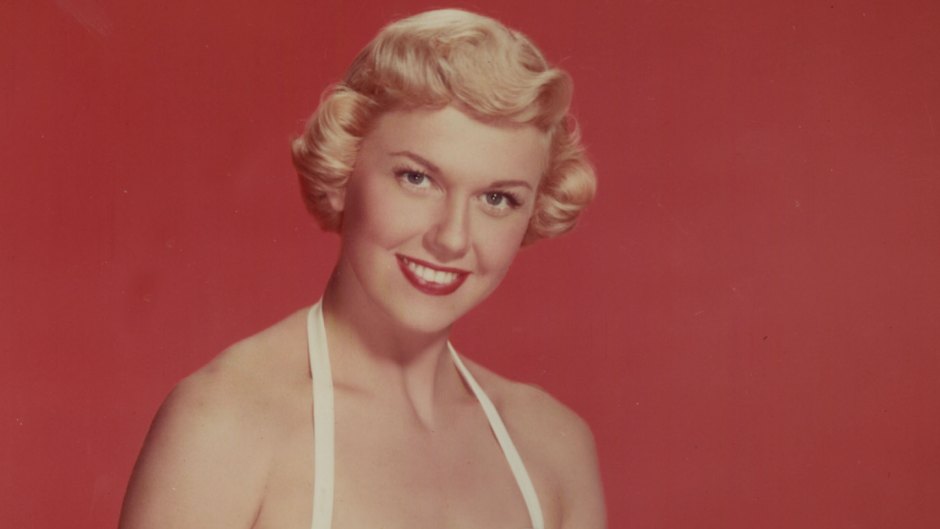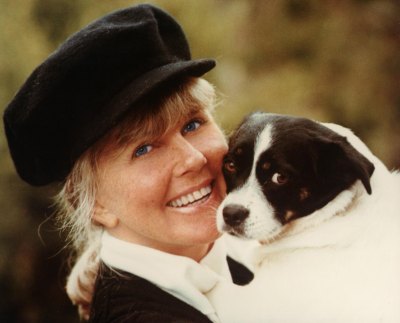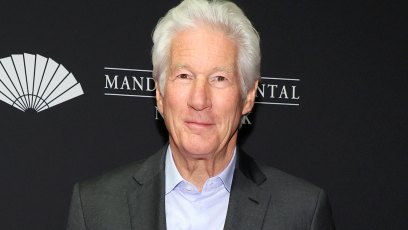
Moviestore/Shutterstock
Doris Day Was an ‘Amazing Person,’ Her Friend Paul Brogan Says: ‘Her Beautiful Blue Eyes Never Wavered’
In the mid-1970s, “women’s liberation” was all the rage, and Hollywood icon Doris Day felt liberated, too. She had survived the financial mess left behind by her third husband, and she was finally free from her obligation to TV’s The Doris Day Show.
In late 1974, Doris had begun rehearsals for her second television special, whose guests included Rich Little, Tim Conway and “Rocky Mountain High” singer John Denver. On it, Doris, then 52, and John, 31, showed real chemistry as they dueted on “Exactly Like You.”
“She was seeing John,” Doris’ friend Paul Brogan tells Closer. “She made a point of saying that if there is a connection between people, that’s what matters.”
In his new memoir, A Sprinkling of Stardust Over the Outhouse, Brogan spills details about his close friendship with Doris and this period in the mid-1970s where she savored her independence after decades of heartbreak.
“You have to stay positive,” Doris told Closer shortly before her passing in 2019. “Whatever is meant to happen will happen.”
Despite Doris’ famously sunny disposition, she knew much suffering in her personal life. Her first husband, whom she married as a teenager, was mentally ill and physically abused her. Doris’ second husband abandoned her and her infant son. Her third, film and music executive Martin Melcher, left her riddled with debt and locked into a TV contract she wasn’t aware of until after his death. “She had been married until 1968, and then she had the TV obligation,” says Brogan. “And suddenly all that was over.”
Doris embraced this new phase of her life with gusto. “She went on Johnny Carson without a bra! She was finally free and having fun,” says Brogan. “Warren Beatty was pursuing her — she said no. But she was finally free to do only what she wanted.”
Brogan, who began corresponding with Doris when he was just a child, visited her at her Beverly Hills home many times during this happy period of her life. “She was this amazing person who never treated me like I was different because I was gay,” he says. “In this era, gay people were often made to feel less than and made fun of, but Doris was never judgmental.”
She also wasn’t pretentious or demanding. “We’d go to the Hamburger Hamlet on Sunset. She would joke that they had great lighting that made her look 20,” Brogan says with a chuckle. “She liked the lady, Miles Davis’ ex-wife, who was the hostess there for many years.”
Over hamburgers and Cokes, they would chat about life. “Around Doris you could talk about anything,” he says. “She listened. She looked you right in the eye, and her beautiful blue eyes never wavered.”

Brogan credits Doris for inspiring him to get involved with charities. “The last chapter of her life was all about her animal work,” he explains. “For me, it was going into the nonprofit world of HIV/AIDS and finding a home.”
Like her friend, Doris found a higher purpose in being of service. “She wasn’t kooky or eccentric,” he says. “She just felt that dogs love unconditionally. They never try to pull a fast one or steal your money.”







































